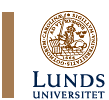

|
Panel No. 45Panel Title: Change and Continuity in Hindu Rituals: Making Sense of the Hindu Identity in the DiasporaConvenor: P. Kumar, School of Religion and Culture, University of KwaZulu-Natal, South Africa Thursday 8 July, 8–12 & 13–18 Panel Abstract: The panel will draw from the diaspora Hindus predominantly from the European countries but also with reference to the Caribbean and South Africa and examine the Hindu rituals with a view to understand the various changes and new inventions that might have been introduced in the context of the diaspora. The panelists will focus on Tamil, Sri Lankan, Telugu and Hindi speaking communities and develop a comparative profile and attempt to theorize the ritual practices among the South Asian Hindus in the diaspora. The panel presupposes that the many ritual practices among diaspora Hindus provides an understanding of their identity construction in the midst of the host society which is culturally alien to the Hindu society. A key question that would be addressed in the panel is whether the various Hindu rituals practised among the different Hindu groups underlines a uniform identity as Hindu or not. In other words, based on the various data from Germany, Norway, Switzerland, the Caribbean and South Africa, the Durkheimian thesis that religion/ritual provides a common identity will be critiqued.
Papers accepted for presentation in the panel:Paper Giver 1: Knut A. Jacobsen, Professor, Seksjon for religionsvitenskap, Universitetet i Bergen, Norway Paper 1 Title: The Ritual Calendar of a Srilankan Tamil Hindu Diaspora Temple Paper Abstract: For the Srilankan Tamil Hindus, diaspora does not necessarily mean reduction of ritual activity or simplification of the rituals. Diaspora often leads to an increased focus on the temple as a cultural centre and as a place to confirm identity and the temple often becomes the single most important cultural institution of the group. This increased importance of the temple might motivate the diaspora group to invest more time and effort in the ritual activity of the temple. This increase in ritual activity becomes visible in the ritual calendar and in the details of the festivals themselves. This paper will present the growth of religious activity in the diaspora community of the Srilankan Tamils in Norway manifested in the ritual calendar of the Sivasubramanyar Alayam, the main Srilankan Tamil temple of Norway, a temple devoted to Murugan. Paper Giver 2: Lindsey Harlan, Professor of Religious Studies, Connecticut College, USA Paper 2 Title: On “Bamboo Weddings”: The Legacy of Illegitimacy in Hindu Trinidad Paper Abstract: Based on research in Trinidad, this paper on Hindu diaspora examines the institution of indentureship and analyzes its impact on the development of salient notions about marriage. Beginning with a discussion of ways in which India is imaged and imagined as a locus of authenticity, it argues that the colonial conceptualizations and treatment of Hindu marriage as illegitimate contributed to anxieties about legitimacy that continue to find expression in contemporary concerns about inheritance, disagreement over what constitutes a proper marriage ritual, and contestation over the necessity and nature of Brahmin officiants. Paper Giver 3: Brigitte Luchesi, University of Bremen, Germany Paper 3 Title: Hindu Tamil processions in the European Diaspora Paper Abstract: Since the 1980s,
Tamil Hindus from Sri Lanka have been living in Europe. Whereas
the early immigrants had no public religious institutions at all,
through time they have set up prayer halls and temples and have
started to celebrate yearly temple festivals and other main religious
events which in turn called for special festival activities in the
South Asian tradition. The most important are public processions
which since the early 1990s are increasingly organised by a number
of temple committees. Paper Giver 4: Prof. P. Kumar, University of KwaZulu Natal, South Africa Paper 4 Title: South
Indian Temples in South Africa: their role in profiling individuals Paper Giver 5: Martin Baumann, Universität Luzern, Luzern, Switzerland Paper 5 Title: Reconstructing the identity in a diasporic setting: Tamil Hindus in Germany Paper Abstract: Tamil Hindus in Germany, having come as asylum seekers since the mid-1980s, have settled for permanent in their "second home". During the recent decade they opened numerous temples and Tamil Hinduism has attracted an increasing interest in the media – not least due to its temple festivals and the building of the impressive, traditionally styled Sri Kamakshi Ampal temple in Hamm/ Westfalia. The paper presents data on basis of qualitative and quantitative research asking how and by which means Tamil Hindus reconstruct religious and cultural identity in this diasporic setting. Furthermore, the combination of the two research approaches enables to investigate questions of social and economic integration on a broad social scientific basis (n=874) as well as to look into the role and function religion takes. Of particular interest is the question whether – as the statistical data indicates – the newly created temples are built in vein, as religion scores low among the second generation.
SASNET - Swedish South Asian Studies Network/Lund
University
|

